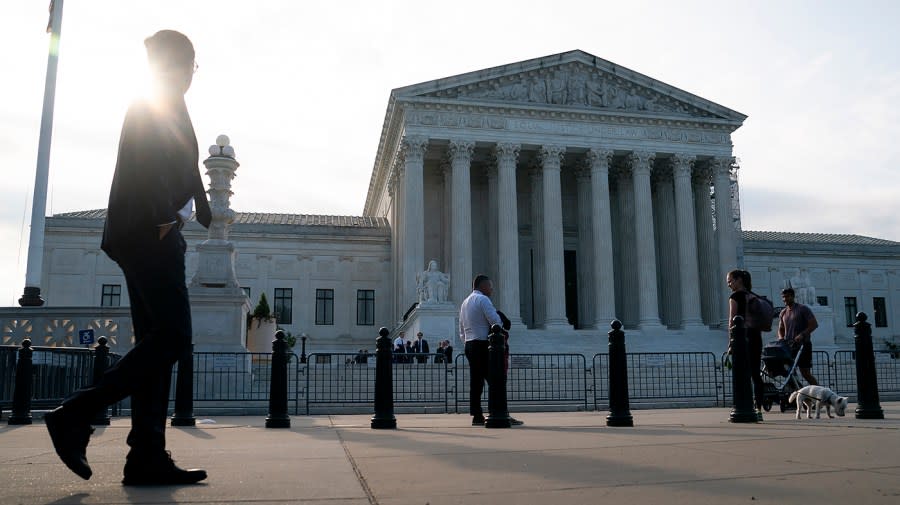Supreme Court upholds repatriation provision in sweeping 2017 tax law

The Supreme Court in a 7-2 decision Thursday upheld a provision in then-President Trump’s sweeping 2017 tax bill while sidestepping a far-reaching question about Congress’s broader taxing authority.
The high court avoided weighing in on what constitutes “income” that the federal government can tax under the 16th Amendment, which has implications for large swaths of the U.S. tax code and could also foreclose the possibility of a wealth tax.
Justice Brett Kavanaugh, writing for the majority, did not delve into whether the 16th Amendment imposes a realization requirement. Instead, he resolved a couple’s challenge to the law’s mandatory repatriation tax on narrow grounds.
“So the precise and narrow question that the Court addresses today is whether Congress may attribute an entity’s realized and undistributed income to the entity’s shareholders or partners, and then tax the shareholders or partners on their portions of that income,” Kavanaugh wrote.
“This Court’s longstanding precedents, reflected in and reinforced by Congress’s longstanding practice, establish that the answer is yes.”
Kavanaugh’s opinion was joined by Chief Justice John Roberts and the court’s three liberals.
Though the majority sidestepped the broader constitutional question, the four other conservative justices did address it, all expressing that they believe the 16th Amendment does impose a realization requirement.
“The Moores are correct. Sixteenth Amendment ‘incomes’ include only income realized by the taxpayer,” Justice Clarence Thomas dissented, joined by Justice Neil Gorsuch.
Justice Amy Coney Barrett, joined by Justice Samuel Alito, agreed with their two fellow conservatives, rejecting the government’s argument that the amendment authorizes Congress to tax unrealized income without apportionment among the states.
“The answer is straightforward: No,” Barrett wrote.
But Barrett and Alito still voted to uphold the tax alongside the majority, writing that the couple had not met their burden after conceding a key point during oral arguments.
Justice Ketanji Brown Jackson, who joined the majority in upholding the tax, wrote separately to cast doubts about a realization requirement.
“I have no doubt that future Congresses will pass, and future Presidents will sign, taxes that outrage one group or another—taxes that strike some as demanding too much, others as asking too little. There may even be impositions that, as a matter of policy, all can agree are wrongheaded,” Jackson wrote.
“However, Pollock teaches us that this Court’s role in such disputes should be limited,” she added, referring to a key precedent implicated in the case.
Charles and Kathleen Moore brought their challenge to the Supreme Court after paying roughly $15,000 in taxes under the provision in Republicans’ 2017 law.
The mandatory repatriation tax imposed a one-time tax on Americans who owned shares in foreign corporations, even if the corporation hadn’t distributed any earnings to the taxpayer.
The Moores had invested in KisanKraft, an Indian company that sells farm equipment. But the couple claimed they never received any distributions or payments from the company, meaning they did not realize any income the federal government was authorized to tax.
Under the 16th Amendment, Congress can levy taxes “on incomes, from whatever source derived.” Otherwise, all other direct taxes must be apportioned among the states.
The Supreme Court’s decision leaves unresolved whether income must be realized for it to fall under the Amendment’s carveout.
Instead, the justices sided against the Moores by finding the income in their situation was realized. KisanKraft realized the income, the court ruled, and Congress fairly attributed the income to the couple.
Alito previously rejected calls to recuse from the case after he sat down for two interviews with an attorney who represents the couple.
Updated 11:18 a.m. EDT
Copyright 2024 Nexstar Media, Inc. All rights reserved. This material may not be published, broadcast, rewritten, or redistributed.
For the latest news, weather, sports, and streaming video, head to The Hill.


